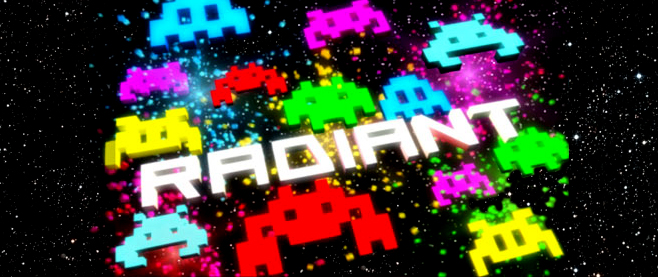
The Space Between Lacks Meaning in Its Metaphor
The Space Between asks you a single question over and over: If two people put their hand on the same spot on either side of a curtain, are they feeling the curtain or the other hand? It’s a powerful metaphor for what separation feels like and eventually gets wrapped up in the act of performance and intimacy. But if you look closely at the under-an-hour experience, that metaphor is all the game has going for it as it repeats the metaphor over and over in one form or another, ultimately saying very little with it.
You play as Martin, an architect who is currently building a concert hall. The game opens with a scene from Martin’s childhood as he and his friend begin the curtain experiment using a makeshift tent constructed of a sheet and two chairs. In the present, he meets a woman named Clara outside his current apartment building, and they begin a relationship. The entire game revolves around Martin and Clara reckoning with walls and closeness. Martin constantly repeats the line “Sometimes walls don’t have to be out of matter.” He lectures Clara about the roles of the audience and the actors, emphasizing the invisible wall between them.
There’s an air of the surreal at work with the game, as watery PS1-quality visuals pair with a scene-jumping structural approach similar to Virginia or Paratopic. But all that atmosphere is at odds with the game’s insistence on repeating the metaphor of the curtain over and over in slightly different contexts. The game completely spells out its insistence that there’s a relationship between closeness and separation, that one paradoxically leads to the other. We see the metaphor started with the tent scene and continued when Martin gives Clara a tour of the incomplete theater as he describes how the separation between audience and actors is what gives the show its intimacy. Later, we see a scene of them together in bed, where Clara tries to get close, but Martin reiterates his belief that separation begets closeness. Everything comes back around as Martin and Clara attempt the thought experiment using a curtain in his room, with Clara subverting things by cutting holes in the curtain in order to establish direct contact. Pretty much every scene is in service to repeating the game’s ethos that separation begets closeness.
Except repeating it over and over doesn’t make it resonate any more than it already does. The Space Between either isn’t interested in doing the hard work of finding meaning in its metaphor or it doesn’t provide the player enough tools to find it for themselves. It just ends up as it begins: A metaphor hanging in the void representing something approaching meaning, but falls short into nonsense. The biggest tell that the game is going nowhere is the shallow character work that goes into Martin and Clara. Clara just wants to be close to Martin without barriers. Martin believes in separation leading to closeness, and is using the death of his friend as a curtain to separate himself. And that’s it. For most of the game, the characters remain static, doing nothing to suggest meaning behind the metaphor except simply repeating it.
The game ends with a surreal descent into something that vaguely explains why Martin dies at the end, but in no way does it suggest a reading of the game’s supposed message either way, nor does the game invite you to come to your own conclusion because for all of The Space Between’s preening over its metaphorical premise, it never shows its work and only repeats the premise over and over.
Light on substance and heavy on its own insistence of its moral core, The Space Between gives the player nothing to latch onto aside from the single metaphor that the entire game is built around. A good narrative experience gives you threads to grasp at to hint at some form of meaning or lead players to a conclusion. The Space Between does none of this, instead stopping at a single thread of an idea and splitting it into two by embodying the two extremes in static characters without giving credence to any sort of meaning.




